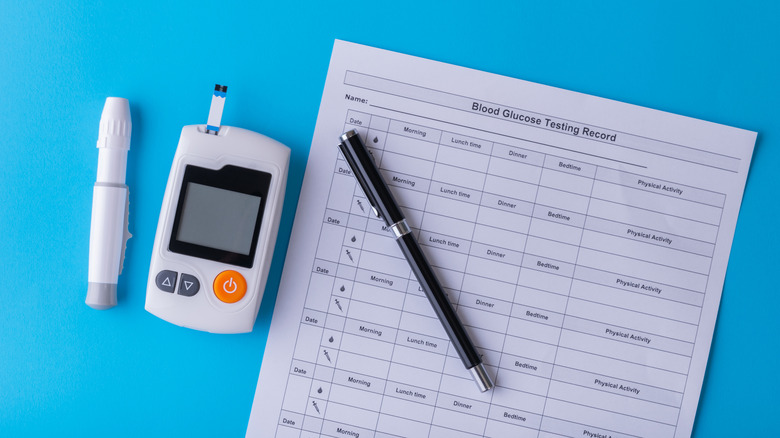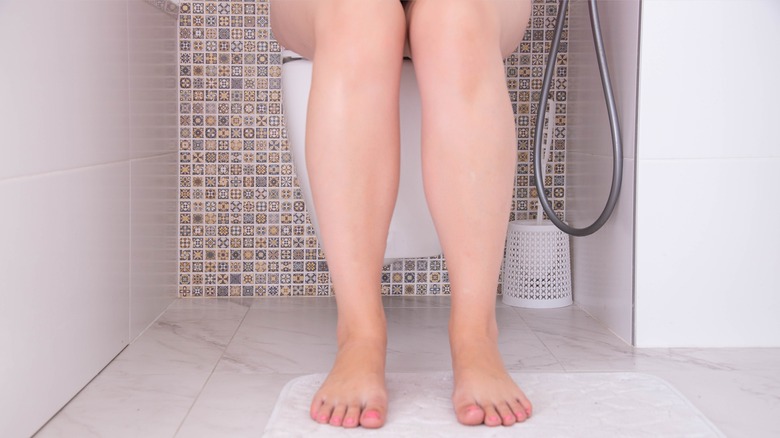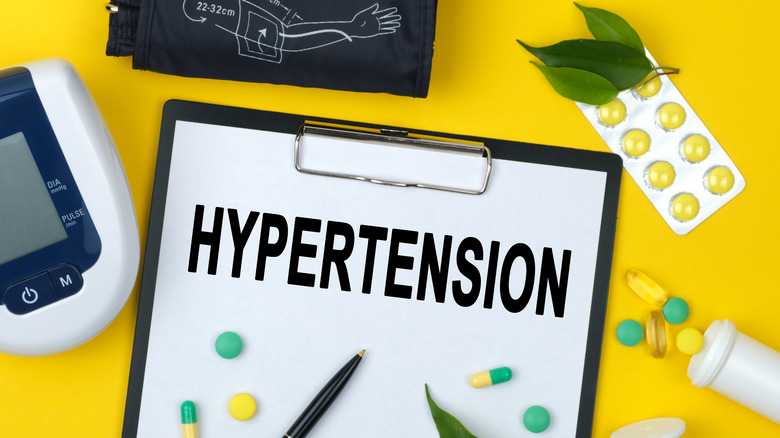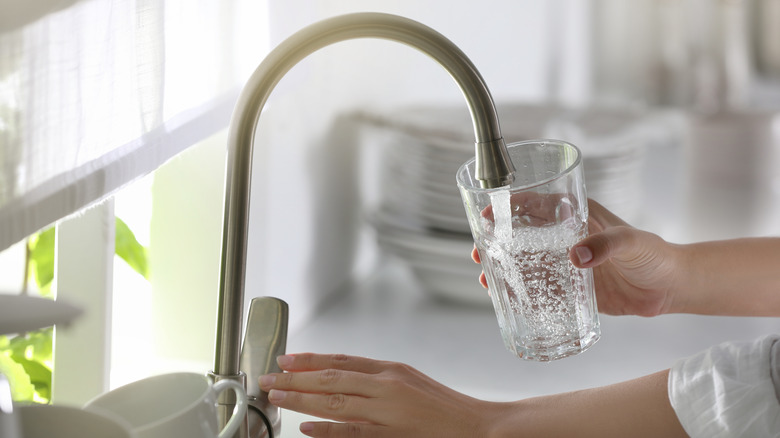Unexpected Signs Your Blood Sugar Is Dangerously High
High blood sugar is a major health crisis in the United States. According to NBC News, it is estimated that half of Americans have either diabetes or high blood sugar. High blood sugar, or hyperglycemia, is a symptom commonly associated with diabetes. It occurs when your body does not produce enough insulin to properly store excess sugar, and there is too much sugar in your blood (per Cleveland Clinic).
Mayo Clinic explains that having hyperglycemia leads to a number of symptoms. However, many of these symptoms won't appear until the levels of sugar in your blood are very high, specifically 180 to 200 milligrams per deciliter. It's important to monitor these signs and live a healthy lifestyle because prolonged high blood sugar can cause damage to your nerves, blood vessels, and organs, says WebMD. Here are five signs of high blood sugar that indicate you should head straight to the doctor.
Excessive urination
It should be made clear that urinating more frequently than normal can be caused by harmless reasons. Drinking more water that day or even getting older are both reasons for increased urination, explains WebMD. However, if you are peeing much more than usual and it persists over time, this may be a sign that you have high blood sugar. According to Mayo Clinic, constantly going to the bathroom is also a common symptom of type 1 and 2 diabetes.
Hyperglycemia is hard on the kidneys, which try to process the overabundance of sugar. When the kidneys can't process the extra sugar, it is expelled through urine (via Healthline). Frequent urination can make you dehydrated, causing you to drink more water, and forcing even more urination.
Frequent urination could also lead to less sleep. Waking up in the middle of the night to pee can cause further sleep complications down the line.
Increased blood pressure
When you go to the doctor for your annual exam, the doctor will probably take your blood pressure readings. Blood pressure represents the pressure that blood exerts against your arteries, according to the U.S. Centers for Disease Control and Prevention (CDC). Although this number goes up and down throughout the day, normal blood pressure is, on average, less than 120/80 mmHg. The level that determines high blood pressure isn't set in stone, however. Some doctors will classify high blood pressure as being consistently over 140/90 mmHg, while others use 130/80 mmHg as the guideline.
High blood sugar can be linked to high blood pressure, notes Johns Hopkins Medicine. In fact, someone with diabetes is twice as likely to have high blood pressure, leading to heart disease and stroke if not taken care of. Medical News Today writes that hyperglycemia can damage various organs and tissues, including the kidneys and blood vessels. Since they are involved in blood pressure regulation, this can cause blood pressure to increase.
Hunger and fatigue
Having high blood sugar means the body uses and regulates that sugar differently than someone with a normal sugar level, writes Medical News Today. Usually, when someone eats a meal, it is broken down into glucose and then absorbed by cells in the body for energy. However, insulin is needed by the cells to absorb the glucose. High blood sugar causes insulin resistance resulting in glucose not being easily absorbed by the cells, which lowers energy levels, says Cleveland Clinic. This lack of glucose can cause fatigue, weakness, and hunger (via Medical News Today). This is also why when you don't eat and aren't used to fasting, your blood sugar plunges, causing a lack of energy since your body doesn't provide enough glucose for cells.
Diabetes medication helps with this in different ways. Some help the pancreas produce more insulin while others allow the kidney to process more sugar, explains the American Diabetes Association.
Constant thirst
Finally, another symptom of high blood sugar is always feeling thirsty no matter how much water you drink. Your muscles and other tissues become dehydrated when the body contains too much sugar. To counteract the sugar, your body will take fluids from other parts of your body to dilute the blood (via Eat This, Not That!). A signal will be sent to your brain, telling you to drink more water to compensate for this transition of fluids.
Because of this, excessive thirst goes hand-in-hand with excessive urination. The more you urinate, the more fluids get expelled from your body, creating even greater feelings of thirst, explains Mayo Clinic.
Reducing high blood sugar is the first step to getting your thirst under control. This can involve diabetes medication or simple lifestyle changes, such as exercising more and eating healthier, which your doctor can help you plan, according to WebMD.





